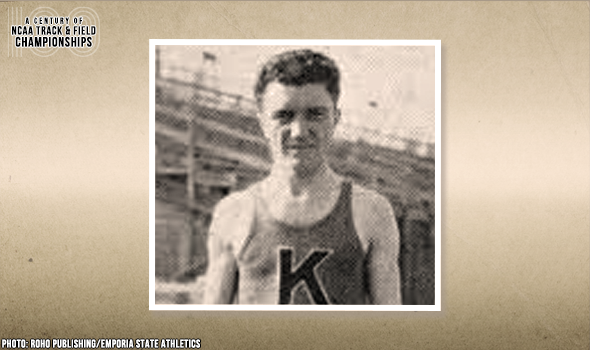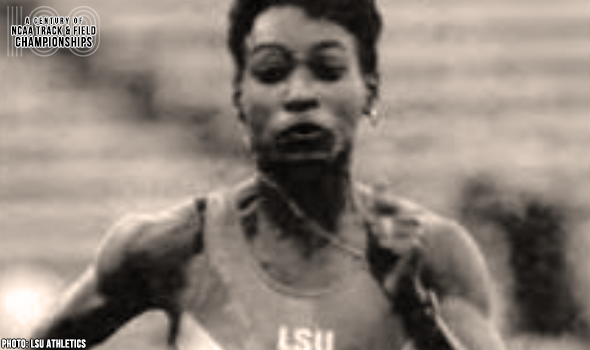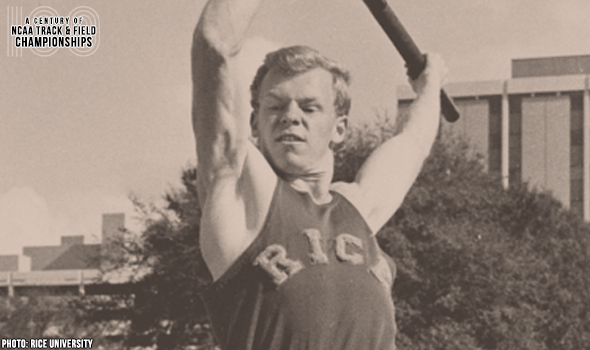
Bjorklund Led Calvary Under 6-Mile MR In 1971
For someone who never raced longer than two miles in high school, Garry Bjorklund took an immediate liking to even longer distances when he arrived at Minnesota.
In his first year, Bjorklund was part of the first freshman 1-2 finish in any distance race in NCAA Division I Outdoor Track & Field Championships history in the 1970 three-mile. Part of that historical finish of youngsters can be explained by the NCAA first allowing freshmen to compete on varsity squads, but nothing can explain how a frosh 1-2 has never happened again in meet history – in any men’s or women’s race at 1500 meters or longer.
Bjorklund and that other freshman – Oregon’s Steve Prefontaine – enjoyed fast racing. In that 1970 NCAA three-mile, Pre won over Bjorklund as the first five broke the meet record. Some 10 days later, they ran again in the AAU national championships, Pre just ahead as they finished 5-6.
The very next day Bjorklund – then still only 18 – jumped in the first six-mile track race of his life at the AAU meet and finished third in 27:30.8 – merely the fastest ever clocked by a collegian.
The performance amazed even his coach, USTFCCCA Hall of Famer Roy Griak, who told Sid Hartman of the Minneapolis Tribune, “There doesn’t seem to be any limit on how good Bjorklund can be.”
The effort put him on the U.S. team, which traveled Europe for three international dual meets. In the next four weeks he ran three more races – two at 10,000 meters in identical 28:50.4 efforts some 10 seconds off the all-time collegiate best.
Many looked for another duel with Pre, but it would have to wait. Bjorklund withdrew from the 1970 NCAA Division I Cross Country Championships (won by Pre) after an emergency appendectomy – three days after winning the Big Ten title with a “pain in his side.”
While Pre concentrated on the three-mile in during the 1971 track season, the six-mile became Bjorklund’s domain. In April, Bjorklund set a collegiate record of 27:24.6 at the Drake Relays, then led a fast race at the NCAA, running 27:43.1 as the first eight broke the existing meet record. Bjorklund followed with the second-fastest time by a collegian at the AAU meet in 27:28.2.
The hoped-for matchup with Pre never came on the track, but at the 1971 NCAA Division I Cross Country Championships. Pre again prevailed, though his seven-second victory there was then the closest of his career in harrier races. Bjorklund almost didn’t start, hampered that fall by back pain.
That race would end up being Bjorklund’s last national finish near the top as a collegian. A foot injury caused him to miss the 1972 NCAA meet, as well as the Olympic Trials. He missed the 1973 season recovering from corrective surgery. A knee injury hampered him further, but he came back for the 1974 NCAA 6-mile, before dropping out while in third place at the 4½-mile point due to heat exhaustion.
At the 1976 Olympics, he was the only American finalist in the 10,000 meters, before he began a successful career in road racing. In 1977, he won the inaugural Grandma’s Marathon in his hometown of Duluth, where a half-marathon was added in 1991 and named after him.
The NCAA and collegiate track & field will mark a momentous milestone in the spring of 2021 -- the 100th anniversary of the NCAA Championships and with that, the NCAA Track & Field Championships. In June 1921, the University of Chicago hosted the first track & field championships in NCAA history.
This point can’t be emphasized enough: Not only was the event the first for NCAA track & field, but the first championships for any sport under the sponsorship of the NCAA.
To celebrate, over each of the next 365 days, the U.S. Track & Field and Cross Country Coaches Association (USTFCCCA) will celebrate moments, student-athletes, and coaches that have made a century’s worth of championships special. From humble beginnings to important historical milestones to the modern-day, collegiate track & field has evolved with the American society.
The 2021 edition of the NCAA Division I Outdoor Track & Field Championships begin with preliminary round action on May 27-29 in Jacksonville, Fla., and College Station, Texas. The championships final site and culmination of the celebration is slated for June 9-12, 2021 at the newly rebuilt Hayward Field in Eugene, Ore.

Clemson’s Ross Kept Getting Faster In 1995
Duane Ross PR’d twice in the 110H at the 1995 NCAA DI Outdoor T&F Championships. When Ross won in 13.32, he became the No. 3 performer in collegiate history.

Illinois’ Kerr Went Back-To-Back At NCAAs
George Kerr won back-to-back 800/880 titles at the NCAA Outdoor T&F Championships in 1959 & 1960. Kerr set a meet record of 1:46.4 in the 800 meters in 1960.

UCLA’s Baucham Bounded To TJ CR In 2005
Candice Baucham won the triple jump at the 2005 NCAA DI Outdoor T&F Championships with a collegiate record of 14.07m (46-2). Baucham took the event by more than one foot.

San Romani Went From Unknown To Legend
Archie San Romani won back-to-back 1500/mile crowns at the NCAA Outdoor T&F Championships in 1935 & 1936.

Auburn’s Glance Made Them Look Twice
Harvey Glance completed the 100-200 double as a freshman at the 1976 NCAA DI Outdoor T&F Championships. He set a meet record of 10.16 in the 100.

Nova’s Rhines Did NCAA 5K Three-Peat
Jen Rhines was the first female athlete in the history of the NCAA DI Outdoor T&F Championships to win three consecutive 5K titles.

Georgia’s Erm Cruised To 2019 Decathlon Title
Johannes Erm won the decathlon at the 2019 NCAA DI Outdoor T&F Championships by 342 points with his 8352 total. That was also the fifth-best score in meet history.

McMillen Adapted, Set 1500 MR In 1952
Bob McMillen set a meet record in the 1500 meters of 3:50.7 at the 1952 NCAA Outdoor Track & Field Championships.

LSU’s Duhaney Destroyed NCAA 200 Field In 1992
Dahlia Duhaney owns the largest margin of victory in meet history in the 200 with her 0.44-second winner at the 1992 NCAA DI Outdoor T&F Championships.

Rice’s Roberts Cooked Up Pole Vault Greatness
Dave Roberts was the second man to win three consecutive pole vault titles at the NCAA DI Outdoor T&F Championships, doing so from 1971 to 1973.

